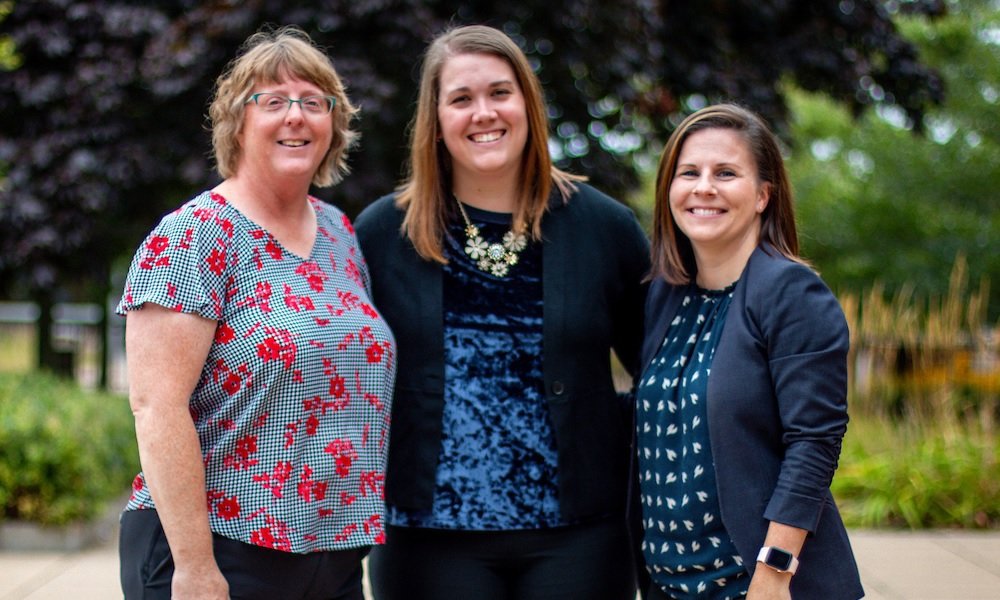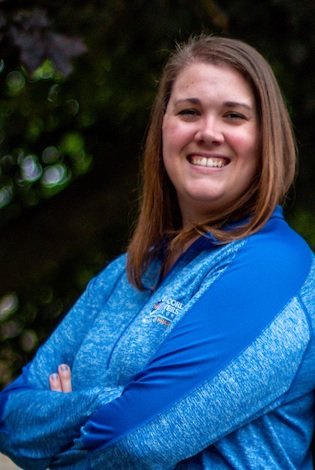 CUW Pharmacy Admissions Team
CUW Pharmacy Admissions Team Applying to pharmacy school can be a challenging and time-consuming process. How do you submit the best application, and when can you submit it? At Concordia University Wisconsin's School of Pharmacy, our faculty and staff are here to help. We understand the complexity and excitement of the journey to becoming a successful pharmacist. To help provide some clarity, the admissions team answers some of your most commonly asked School of Pharmacy admissions questions.
I need to have a bachelor’s degree to be accepted to Concordia’s School of Pharmacy.
MYTH:
It is a common misconception that you need a bachelor’s degree to begin your pharmacy school journey. There are several paths for pre-pharmacy students to gain admission into the Doctor of Pharmacy (PharmD) program. A bachelor’s degree is not always required.
In the bullets below, the numbers represent the number of years in (bachelor’s) + (doctoral) years.
- The 2 + 4 plan is the quickest path to earn a PharmD degree at Concordia. All students in this program must be sophomores at Concordia University Wisconsin to apply. Students who choose this path take prerequisite courses over the course of two undergraduate years in CUW coursework. At the end of their sophomore year, they apply for admission to the PharmD program.
- The 3 + 4 plan allows students to take the prerequisite courses over the course of three undergraduate years and then apply for admission to the PharmD program. Concordia partners with several institutions to offer Bachelor’s/PharmD Dual Degrees. Most recently, UW-Green Bay and Concordia entered a 3+4 partnership. Other schools include Alverno College, Concordia University Saint Paul, Edgewood College, Lakeland University, and University of Wisconsin-Milwaukee. Check out more information about the 3+4 plans here.
- The 4 + 4 plan is for students with a strong desire to complete a bachelor’s degree before beginning the PharmD program at CUW. They can complete this coursework at any accredited institution which offers the required prerequisites. Students on this path most often choose to study Biology, Biomedical Sciences, or Chemistry. Students will take the required prerequisite courses along with the required courses for their degree program.
No matter which path you choose, the admissions team in the School of Pharmacy at Concordia University Wisconsin is available to help you along the way.
The Concordia School of Pharmacy pre-pharmacy course requirements must be completed before I apply to pharmacy school.
MYTH:
Many applicants are still completing their prerequisites during the application process. It is true that the pre-pharmacy course requirements must be completed before starting the PharmD program curriculum, but pre-pharmacy courses can be in progress while your application is underway.
Successful applicants demonstrate a solid understanding of not only the fields of biology, chemistry, and math, but also communications, economics, and liberal arts. All pre-pharmacy requirements must be completed with a grade of C- or better. To receive an individual transcript evaluation of your pre-pharmacy coursework, email our pharmacy admission counselor, Lauren Dixon, at lauren.dixon@cuw.edu.
 Lauren Dixon - CUW SOP Admissions Counselor
lauren.dixon@cuw.edu
Lauren Dixon - CUW SOP Admissions Counselor
lauren.dixon@cuw.edu
Concordia’s School of Pharmacy will consider my experiences with service, leadership, and volunteerism in my community and/or at my undergraduate institution. I should include them on my PharmCAS application.
TRUE:
Absolutely. We consider these experiences as part of the candidate review process. Concordia strives to enroll well-rounded, motivated future pharmacists. Additionally, we seek candidates who have demonstrated significant time in developing themselves as servant leaders. This might be demonstrated through involvement in extracurricular activities, service organizations, or religious communities. These experiences do not have to be related to health care or pharmacy but should be recent commitments.
It also helps if these experiences are commitments that have spanned a longer period of time. Students are assessed in this area through the PharmCAS application, letters of reference, and the interview process. There are also other areas that are holistically considered by the admissions committee. They include:
- Academic performance (college coursework, PCAT scores)
- Motivation and understanding of a career in pharmacy
- Communication (writing sample within the PharmCAS application and effective communication during the interview, if invited)
Visit our admissions page to learn more about becoming a competitive applicant.
I need to work at a pharmacy before I apply to pharmacy school.
MYTH:
This is one of the most common School of Pharmacy admissions questions. While some students choose to get their pharmacy exposure through a pharmacy technician position, that is not the only way to gain first-hand experience in the world of pharmacy. There are many ways you can obtain pharmacy experience. Many students learn more about the profession through shadowing opportunities. Other students have experiences that include pharmacy volunteering or interviewing a pharmacist about their career. These experiences help you develop a deeper motivation and understanding of a career in pharmacy. Additionally, it shows us you are genuinely interested in shaping the future of pharmacy.
To summarize, no matter how you get experience, the most important thing is to have first-hand involvement in pharmacy settings. This involvement shows us that you have a basic understanding of pharmacy and a commitment to the profession.
If you are in your beginning stages of research, we recommend exploring pharmacyforme.org to learn more about pharmacy.
I have time to decide my career path in pharmacy.
TRUE:
There are so many career paths a pharmacist can pursue. You certainly don’t need to know exactly where you want to end up right away. The Concordia School of Pharmacy curriculum is designed to expose you to a variety of pharmacy settings during each semester of the PharmD program through our experiential education requirements.
Here are some examples of experiential education:
- P1/P2 Introductory Pharmacy Practice Experiences (IPPES): During IPPES, students do two, one-week rotations each semester in hospital and community pharmacy settings. IPPES are designed to build up your patient interaction skillset. They also help you bring personal experiences back to the classroom.
- P3 Elective IPPES: These unique electives are available during the third year of pharmacy. They help diversify your professional experiences and allow you to explore specialized pharmacy settings.
- P4 Advanced Pharmacy Practice Experiences (APPES): These are done during your last year of pharmacy school. Each APPE is six weeks in length. These rotations take place in diverse pharmacy and patient care settings. APPES help you develop advanced pharmacy practice skills.
Pharmacists work in a variety of practice areas including community pharmacy, acute care, ambulatory care, hospital pharmacy, academia, research, and many more!
CUW School of Pharmacy will prepare you for success.
TRUE:
Just as your patients will trust you, you can trust that your Concordia School of Pharmacy education will provide you with the knowledge needed for success, no matter which path you take as a pharmacist. Your experiences in the program will expose you to a wide variety of career options. Often times, students end up exploring careers they didn’t even know existed. In an ever growing field, the opportunities are endless.
To learn more about career pathways in pharmacy, or if you have more School of Pharmacy admissions questions, contact pharmacy@cuw.edu.
Want to visit Concordia University Wisconsin School of Pharmacy? Check out our upcoming events and visit options or contact us!
—
If this story has inspired you, why not explore how you can help further Concordia's mission through giving.